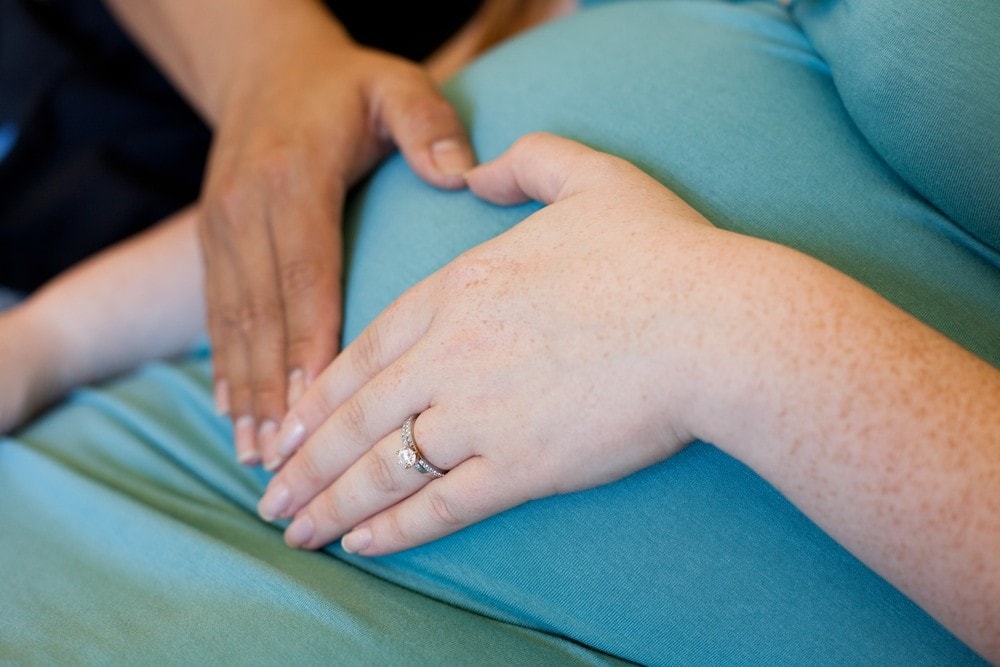These last several weeks can become tiresome, but remember that every week brings you one step closer to the arrival of your little one. Here’s what to expect when you’re 32 weeks pregnant.
What changes are occurring with your body during the 32nd week of pregnancy?
The top of your uterus can now be measured about 5 inches above your belly button. Because the top of your uterus is so high, you may begin to have trouble breathing or feel short of breath. This is due to the pressure that your growing uterus is placing on your diaphragm. This same pressure may also cause an increased amount of heartburn.
Most likely you are gaining about a pound per week. Your blood volume has increased by 40% to 50% during the past 32 weeks, allowing your body to accommodate both you and your baby. This increased volume is also important because it makes up for the amount of blood you will lose during delivery.
How big is your baby at 32 weeks pregnant?
Your baby is a little over 16 inches (40.6 cm) long and weighs between 4 and 4 ½ pounds (1.8 to 2 kg).
What is happening with your baby?
Your baby is continuing to grow. The toenails and fingernails have formed, and the lungs are continuing to mature, although they will not be fully developed for several more weeks.
Your baby’s skeleton has completely formed, but the bones are still very soft and pliable.
What should you plan for this week?
If you have not had any complications during your pregnancy, you most likely have been seeing your health care provider on a monthly basis. Around this time though, your healthcare provider will ask you to begin making visits every two weeks.
This will continue over the next four weeks, and then you will begin having appointments once a week.
Have you made a decision on whether or not you plan to save your baby’s cord blood? Cord blood is the blood that remains in the umbilical cord and placenta following birth.
This is usually discarded. However, cord blood stem cells can treat the same diseases like bone marrow, but with a reduced chance of rejection. It is important to have a medical history and risk assessment to evaluate whether to store your baby’s cord blood.
Storing your baby’s cord blood is a type of insurance to protect your growing child from future conditions that might be diagnosed later and treated with the stem cells from that stored cord blood. The most economical place to store your blood is through Caring Cryo Partnership.
Tips for making your pregnancy better
Last week we began talking about Braxton Hicks contractions.
If you are experiencing these early contractions, there are several ways you can try to alleviate them:
- Change positions. Lie down if you have been standing, or go for a walk if you have been sitting or lying down.
- Take a warm bath for 30 minutes or less.
- Drink a couple of glasses of water because contractions may be stimulated by dehydration.
- Drink a warm cup of herbal tea or milk.
If these steps do not help alleviate your contractions, contact your healthcare provider.
Tips for mom’s partner:
The fact that your baby’s arrival is around the corner may cause you to question your priorities. Begin to think about what you want your life to look like once your baby is born.
If you want to be present for your baby’s birth, it may take a little planning, especially if you travel for work.
Once your baby is born, is there a way you can ensure that you have time for both your baby and your partner? Is working from home to some degree a possibility?
These are just some things that both you and your partner need to be thinking about during pregnancy week 32.
Want to Know More?
- Creating Your Birth Plan
- Cord Blood Banking – Your Three Choices Explained
- Get the Fetal Life App for Apple and Android endorsed by the American Pregnancy Association.






